Breaking News


Popular News

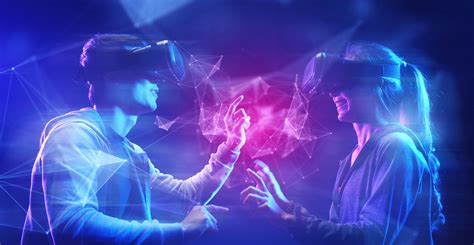
Explore the Metaverse’s impact on entertainment, gaming, VR, and content creation. Discover the rise of virtual events, AR in entertainment, and ethical challenges.In today’s digital age, the convergence of technology and entertainment has given rise to a new and immersive virtual space called the Metaverse. From gaming and virtual reality (VR) to augmented reality (AR) and virtual events, this interconnected digital universe is increasingly shaping the way we consume and create content. But what exactly is the Metaverse, and how is it impacting the entertainment industry?
In this blog post, we will explore the concept of the Metaverse and its implications for the world of entertainment. We’ll delve into the innovative advancements in gaming and VR, as well as the new opportunities it presents for content creators. Additionally, we’ll discuss the rise of virtual events and the integration of augmented reality in entertainment. However, as with any technological advancement, there are also challenges and ethical considerations that come with embracing the Metaverse. Join us as we navigate through the exciting yet complex landscape of the Metaverse and its influence on the entertainment industry.
Contents

The Convergence of Tech and Entertainment: Embracing the Metaverse
What is the Metaverse?
The concept of the Metaverse has been gaining a lot of attention lately, but what exactly is it? Simply put, the Metaverse is a collective virtual shared space, created by the convergence of virtually enhanced physical reality and physically persistent virtual reality. It is a space where users can interact with a computer-generated environment and other users, often in real time. This concept is not new, but recent advancements in technology have brought it closer to reality than ever before.
One of the most common examples of the Metaverse is in the world of gaming and virtual reality. In these environments, users can create and customize their own avatars, interact with other players, and even participate in activities that mimic real life. However, the Metaverse is not limited to gaming. It has the potential to impact a wide range of industries, including entertainment, education, and even business.
As technology continues to evolve, our understanding of the Metaverse will also expand. It is likely that the concept will become more integrated into our daily lives, offering new and exciting opportunities for content creation, communication, and interaction.
In conclusion, the Metaverse is a virtual world where people can connect, create, and explore together. It represents the convergence of technology and entertainment, and has the potential to revolutionize the way we interact with the digital world.
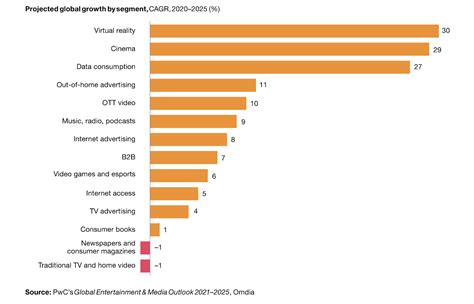
The entertainment industry has always been quick to embrace new technologies, and the metaverse is no exception. As it continues to develop, the metaverse is poised to revolutionize the way we consume entertainment, blurring the lines between the digital and physical worlds.
One area where we can expect to see a significant impact is in the way we experience movies, TV shows, and other forms of visual media. With the metaverse, viewers will have the opportunity to immerse themselves in their favorite stories in ways never before possible. This could mean stepping into the world of a beloved film, interacting with characters, and experiencing the narrative from a new perspective.
Gaming is another area that stands to be transformed by the metaverse. As the technology advances, we can expect to see a new wave of interactive, immersive experiences that blend gaming, social interaction, and entertainment in ways that were previously unimaginable. From virtual reality to augmented reality, the metaverse has the potential to redefine what it means to play a game.
The music industry is also likely to be impacted by the metaverse, as artists and fans alike seek new ways to connect and collaborate in a virtual space. Virtual concerts and immersive music experiences are already gaining traction, and as the metaverse continues to evolve, we can expect to see even more innovative ways for musicians and their audiences to engage.
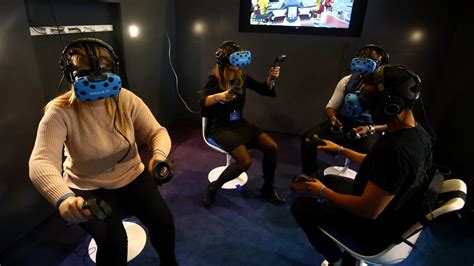
Virtual Reality (VR) and gaming have come a long way in recent years, with technological advancements driving innovations in both fields. VR allows gamers to immerse themselves in a completely virtual environment, enhancing their gaming experience like never before. From high-tech headsets to motion sensor controllers, the gaming industry has been quick to embrace VR technology and integrate it into their game offerings.
One of the most significant innovations in gaming and VR is the development of interactive and immersive gameplay experiences. With the use of VR headsets, players can feel like they are part of the game, with 360-degree perspectives, spatial audio, and realistic haptic feedback. This level of immersion blurs the lines between the virtual and physical world, creating an entirely new gaming experience for players.
Additionally, with the rise of augmented reality (AR), gaming experiences have become even more interactive and engaging. AR technology overlays digital information onto the real world, allowing gamers to interact with virtual objects and characters in their physical environment. This innovation has opened up new possibilities for creating dynamic and interactive gaming experiences.
Furthermore, the integration of VR technology into other entertainment sectors, such as theme parks and live events, has opened up a new world of possibilities for the gaming industry. With VR experiences becoming more accessible and affordable, the potential for gaming and VR innovation is limitless.

As technology continues to advance, there are new and exciting opportunities for content creation in the entertainment industry. With the rise of the Metaverse, creators have a whole new digital world to explore and unleash their imaginative talents. The Metaverse provides a platform for endless storytelling possibilities, immersive experiences, and interactive content that blur the lines between reality and virtual environments.
Content creators can now utilize cutting-edge virtual reality (VR) and augmented reality (AR) technologies to craft captivating narratives and visually stunning experiences. VR allows users to step into a completely immersive 3D environment, while AR overlays digital elements onto the real world, creating new avenues for storytelling and engagement. These technologies open up new doors for content creators to experiment with innovative storytelling techniques and create experiences that were once unimaginable.
In addition to VR and AR, the convergence of tech and entertainment has led to the emergence of advanced gaming platforms and interactive experiences, providing new mediums for content creators to engage with audiences. From virtual concerts and live streaming events to interactive storytelling experiences, the possibilities for content creation are expanding rapidly in the digital realm.
Furthermore, the integration of artificial intelligence (AI) and machine learning in content creation tools is revolutionizing the process of generating and curating personalized content for audiences. AI-powered analytics and recommendation systems enable creators to tailor content to individual preferences, enhancing user experiences and driving greater audience engagement.
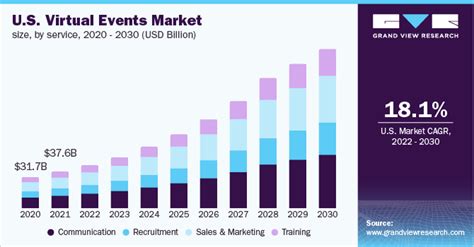
Virtual events have become increasingly popular in recent years, especially in light of the global pandemic. As people have become more accustomed to connecting online, the entertainment industry has seen a surge in virtual events, from live concerts to virtual reality festivals. This shift has opened up new opportunities for content creators and event organizers to reach a global audience in an immersive and interactive way.
The rise of virtual events has also led to innovations in gaming and VR technology, as developers seek to create more realistic and engaging experiences for participants. With the use of augmented reality and digital avatars, virtual events are transforming the way people experience entertainment, blurring the lines between the physical and digital worlds.
In addition to offering new opportunities for content creation, the convergence of tech and entertainment has presented challenges and ethical considerations. As virtual events become more prevalent, there is a need to address issues such as data privacy, security, and inclusivity. It is important for event organizers to ensure that virtual experiences are accessible to all individuals, regardless of their physical location or ability.
Overall, the rise of virtual events signifies a shift in the way we consume entertainment, embracing the metaverse and the limitless possibilities it offers. As technology continues to advance, we can expect virtual events to become even more immersive and interactive, providing a new way for people to connect and engage with their favorite content and creators.
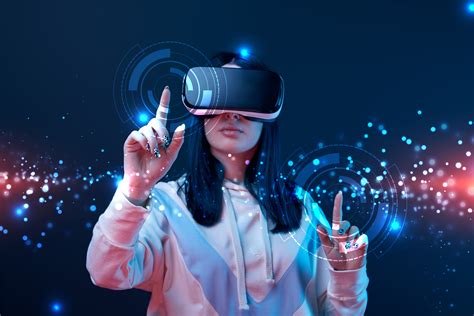
In recent years, the entertainment industry has seen a significant shift towards incorporating augmented reality (AR) into various forms of entertainment. AR technology has the capability to enhance the viewer’s experience by overlaying digital information onto the physical world, creating an immersive and interactive experience like never before.
One area where AR has made a significant impact is in the realm of live performances and events. Through the use of AR, artists and event organizers are able to create visually stunning and dynamic performances that captivate audiences in new and innovative ways. This technology has opened up new possibilities for live entertainment, allowing for the integration of digital elements into real-world environments.
Furthermore, AR has also been embraced in the world of gaming, with developers utilizing this technology to create rich and immersive gaming experiences. By incorporating AR into gaming, players are able to interact with virtual elements within their physical surroundings, blurring the lines between the digital and physical worlds.
Moreover, AR has also been utilized in marketing and advertising, allowing brands to create engaging and interactive promotional campaigns. By leveraging AR technology, companies are able to provide consumers with unique and memorable experiences that leave a lasting impression.

Challenges and Ethical Considerations
Challenges and Ethical Considerations
As technology continues to advance and the metaverse becomes more integrated into our daily lives, there are a number of challenges and ethical considerations that need to be addressed. One of the main challenges is the potential for addiction and overconsumption of virtual reality experiences. With the immersive nature of the metaverse, there is a risk that individuals may become addicted to the escapism it offers, leading to negative impacts on mental health and real-world relationships.
Another challenge is the issue of privacy and data security within the metaverse. As users interact and create content within virtual spaces, there is a need to ensure that their personal information is protected and that their digital identity remains secure. The potential for cyber-attacks and data breaches within the metaverse raises serious ethical concerns and necessitates the development of robust security measures.
Furthermore, there are ethical considerations surrounding the creation and dissemination of content within the metaverse. With the ability to generate and share lifelike avatars and experiences, there is a risk of misuse and exploitation. It is essential to establish ethical guidelines and regulations to prevent the spread of harmful or inappropriate content, as well as to protect the rights and dignity of individuals within virtual environments.
Lastly, the integration of the metaverse into various industries raises questions about accessibility and inclusivity. As virtual experiences become more prevalent in entertainment, education, and social interaction, it is crucial to ensure that all individuals, regardless of physical or cognitive abilities, have equal access to the metaverse. This involves addressing issues such as VR motion sickness, hardware affordability, and designing inclusive experiences for diverse audiences.

What is the metaverse?
The metaverse is a collective virtual shared space, created by the convergence of virtual reality, augmented reality, and other immersive technologies.
How is technology shaping the entertainment industry in the metaverse?
Technology is shaping the entertainment industry in the metaverse by providing new and immersive ways for users to engage with content, such as virtual concerts, interactive gaming experiences, and virtual reality movie screenings.
What are some examples of entertainment in the metaverse?
Some examples of entertainment in the metaverse include virtual reality concerts featuring famous artists, multiplayer online games with immersive storytelling, and virtual movie theaters for watching films with friends from around the world.
What are the potential benefits of embracing the metaverse in entertainment?
Embracing the metaverse in entertainment can lead to increased engagement and interaction with audiences, new revenue streams from virtual goods and experiences, and the ability to create innovative and memorable experiences for fans.
What are the challenges of integrating tech and entertainment in the metaverse?
Challenges of integrating tech and entertainment in the metaverse include ensuring accessibility for all users, addressing privacy and security concerns, and navigating the rapidly evolving landscape of immersive technologies.
How can content creators and artists thrive in the metaverse?
Content creators and artists can thrive in the metaverse by exploring new ways to engage with audiences, creating unique experiences that take advantage of immersive technologies, and collaborating with tech companies to leverage the latest tools and platforms.
What does the future hold for tech and entertainment in the metaverse?
The future of tech and entertainment in the metaverse is likely to see continued innovation in virtual experiences, the blurring of boundaries between physical and digital entertainment, and the emergence of new business models driven by the convergence of technology and entertainment.